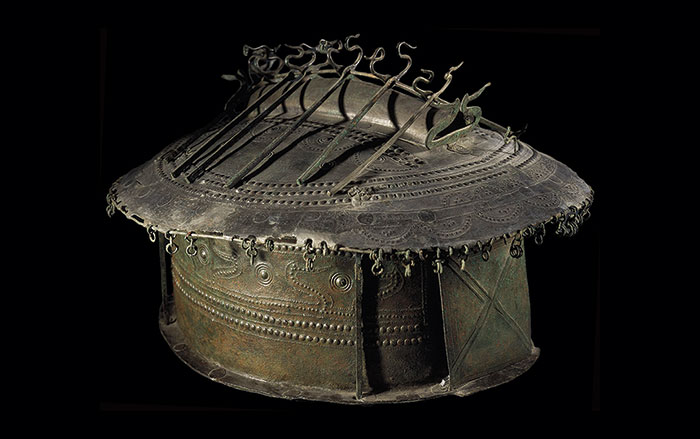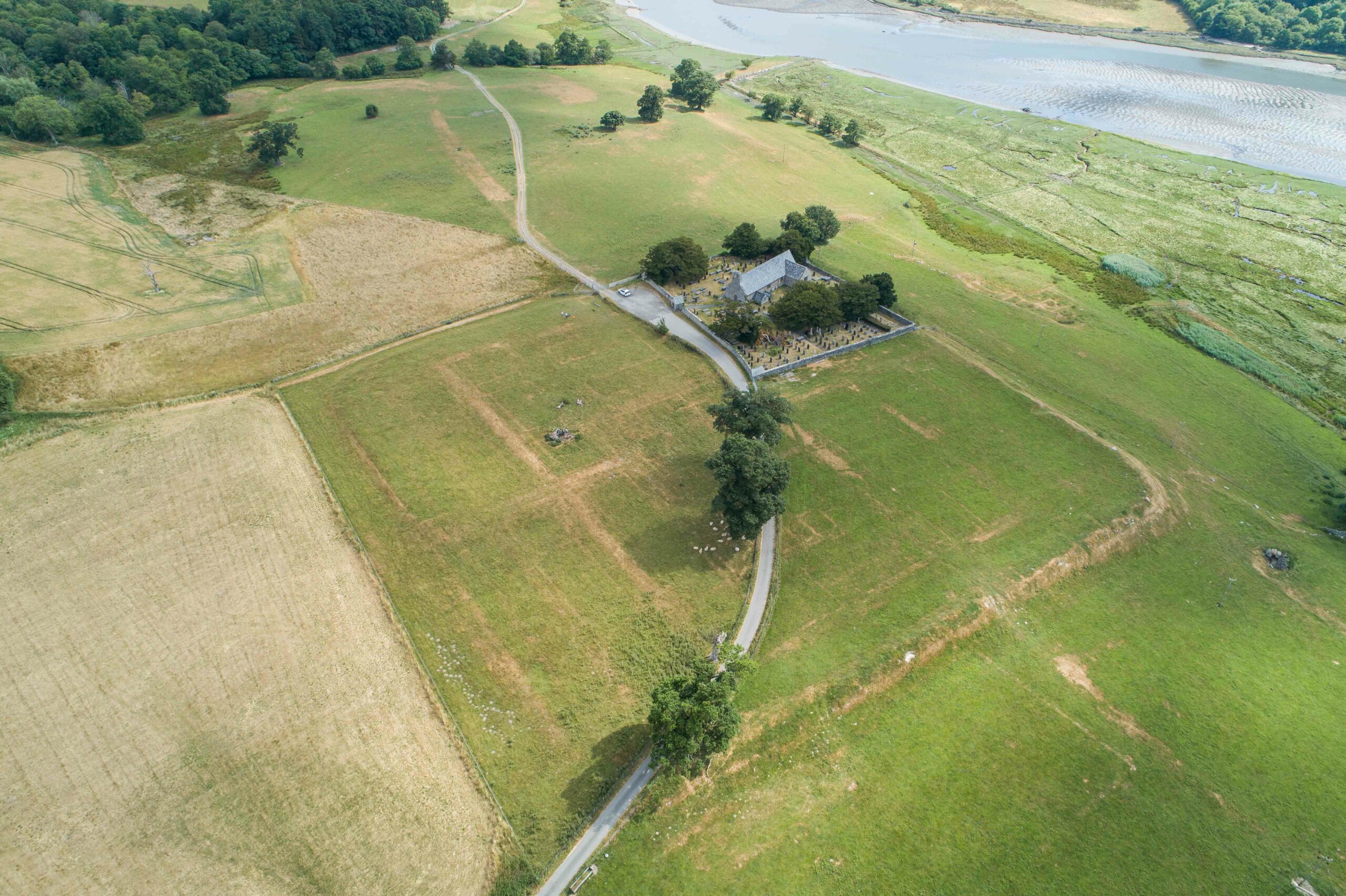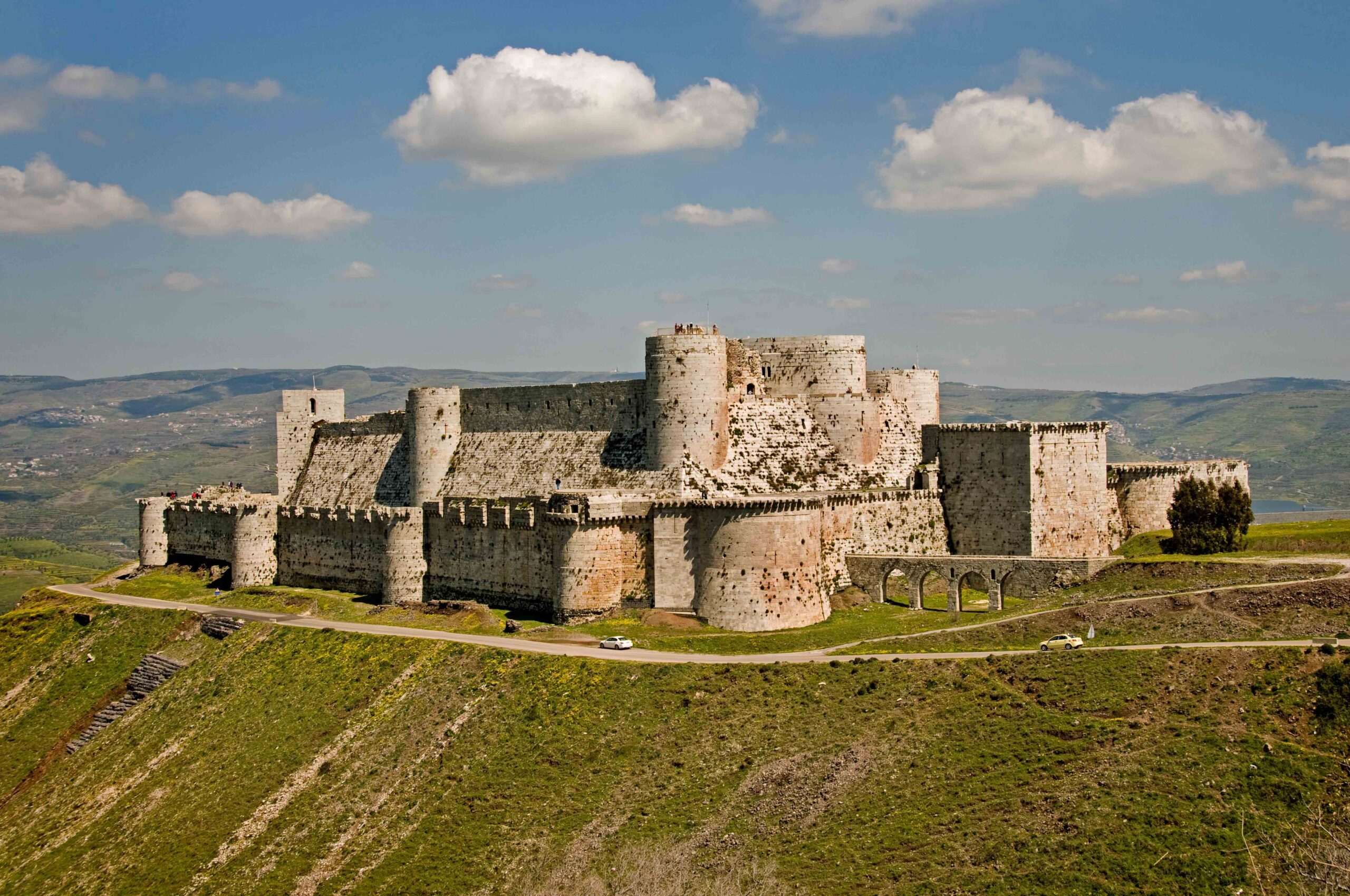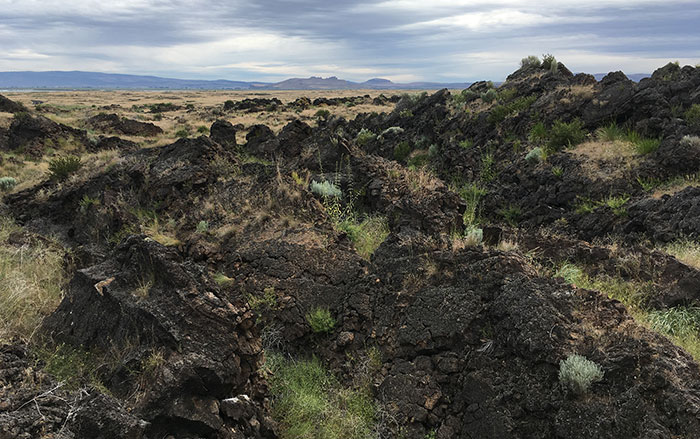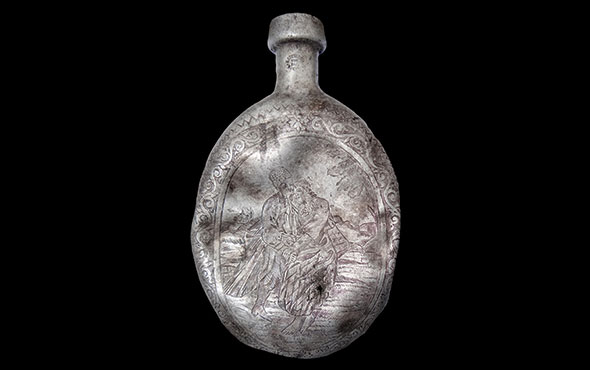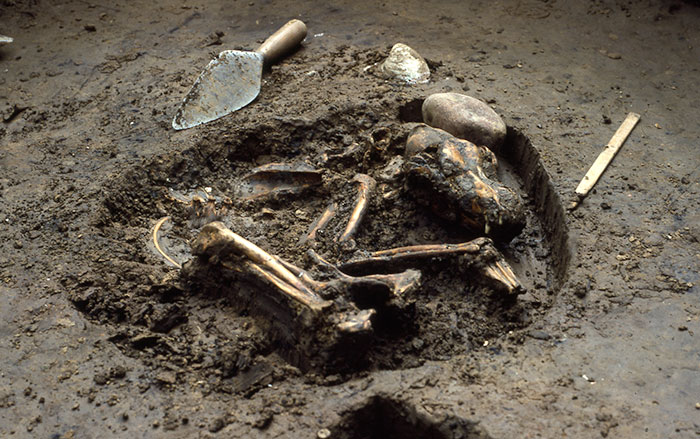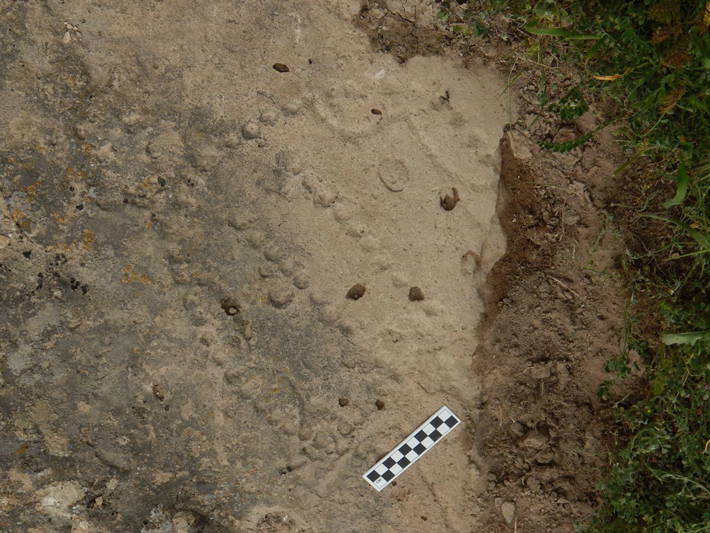
NEW YORK, NEW YORK—According to a Live Science report, Walter Crist of the American Museum of Natural History has identified a collection of pits carved into a rock shelter in Azerbaijan as a 4,000-year-old game board. Known as “58 Holes,” or “Hounds and Jackals,” copies of the game have also been found in the tomb of the ancient Egyptian pharaoh Amenemhat IV, and at other sites dating to around the second millennium B.C. in Mesopotamia and Anatolia. This set of pits is located in Gobustan National Park, which is known for its ancient rock art. Scholars think the game was played in a manner similar to backgammon, with counters moved around the board. “It is two rows in the middle and holes that arch around outside,” Crist said of its layout, “and it’s always the fifth, tenth, fifteenth, and twentieth holes that are marked in some way.” A larger hole at the top is thought to be the goal, or endpoint, of the game. To read about an excavation of far more modern games, go to “The Video Game Graveyard.”





